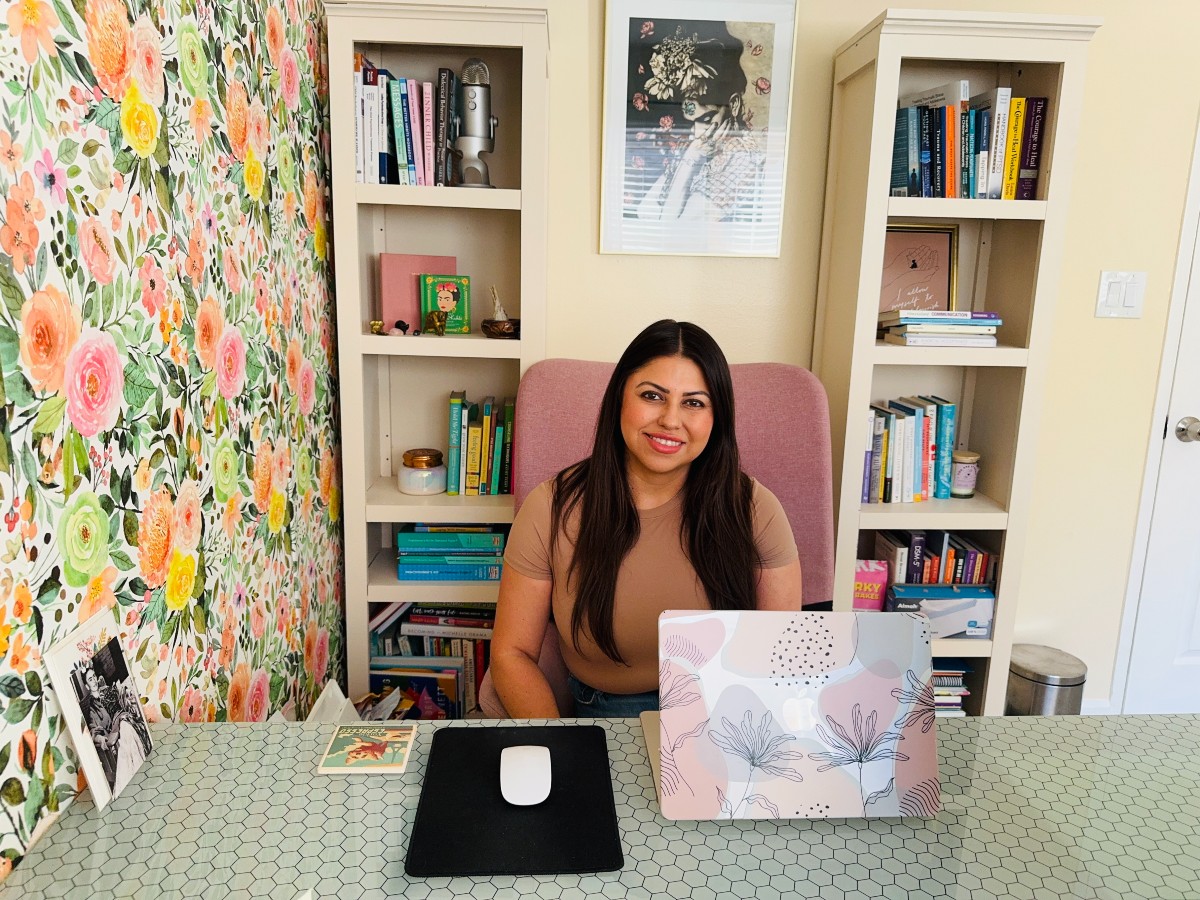
Throughout my life, I’ve been in and out of therapy, and recently, I decided it was time to find a therapist again. When I was younger, I didn’t think much about who I was meeting with, but as I’ve grown older and my needs have evolved, finding a culturally competent therapist who understands the nuances of Latinx culture has become a priority. This search turned out to be incredibly challenging—I struggled to find someone with availability, within my budget, with the experience I was looking for, and with whom I felt safe and comfortable. It was then that I realized, despite the presence of Latinx therapists, we are still a minority in the field compared to the broader profession.
When I first told my family that I was going to graduate school to pursue a career in counseling, I don’t think they fully understood what that meant. Honestly, I wasn’t entirely sure myself; my only clear goal was to be in a profession where I could help people. As I sat in my graduate school classes, I quickly noticed that I was a minority, which made it difficult to express how I felt in those environments. It was here that I became acutely aware of the underrepresentation of Latinx professionals in the mental health field. This led me to wonder whether my graduate program was an exception or if this lack of diversity was the norm across the helping profession.
After graduation, I quickly learned that the path to becoming a licensed mental health professional varies depending on the state and specific licensure requirements. In California, there are three main mental health licenses to pursue: Licensed Clinical Social Worker (LCSW), Licensed Marriage and Family Therapist (LMFT), and Licensed Professional Clinical Counselor (LPCC). Each license offers a different specialty, allowing you to work with various populations. The journey typically begins with two years of graduate education, followed by the completion of 3,000 hours of “on-the-job training” under the supervision of a licensed therapist who guides you toward licensure. During this period, you’re also required to pass a law and ethics exam to ensure your understanding of the profession’s legal and ethical standards. Once you’ve completed your 3,000 hours, you must pass a licensing exam to officially become a licensed therapist. It’s a journey filled with numerous requirements, high expectations, and a significant investment of time and dedication.
So, why aren’t there more of us in the mental health field? Why isn’t there an abundance of Latinx individuals pursuing careers in mental health? A significant factor is stigma. In our Latinx culture, stigma around mental health runs deep, and this often discourages discussions about emotional well-being. I believe that the same stigma may deter those who are interested in entering the helping professions. The cultural reluctance to engage in mental health conversations leads to a lack of awareness about careers in psychology or counseling within our communities. Additionally, economic barriers, such as the high cost of education and limited access to resources, make it challenging for Latinx individuals to pursue advanced degrees in these fields. As a result, more culturally accepted career paths, like education or the medical field, might seem like the safer, more practical choice.
As a result, many of us are drawn to the mental health field through personal experiences, exposure to mental health issues within our communities, or a deep desire to address the disparities we witness. Overcoming these barriers demands increased support, mentorship, and education within the Latinx community, particularly because many of us come from families where higher education isn’t the norm. Often, we are the first in our families to attend college, all while managing the expectations of staying close to home and caring for our loved ones. Even after becoming therapists, the challenges persist. As Latina therapists, we often bear the responsibility of serving our communities—a privilege, but also a heavy burden. We’re not just providing therapy; we’re educating our clients about what therapy entails, fighting the stigma around mental health, and navigating cultural nuances that others might not fully grasp.
Despite these challenges, Latina therapists are making strides to change the landscape of mental health care. Many of us are involved in efforts to increase the representation of Latinx professionals in the field, mentoring younger students, and advocating for more culturally relevant training in graduate programs. We’re also working to build networks and communities of support, both for ourselves and for our clients. Some of us are using our social media platforms to educate others about the importance of culturally competent care, speaking at conferences, writing books, leading workshops, teaching at the graduate level and engaging in community outreach. Others are focused on making therapy more accessible, offering sliding scale fees, or providing services in underserved areas, all in an effort to decrease stigma and increase access.
The road to becoming a therapist is not easy, especially for Latinas, but it’s a journey that is vital for the health and well-being of our communities. By continuing to break down barriers, advocate for our needs, and support each other, we can help ensure that more Latinx individuals have access to the culturally competent care they deserve.


